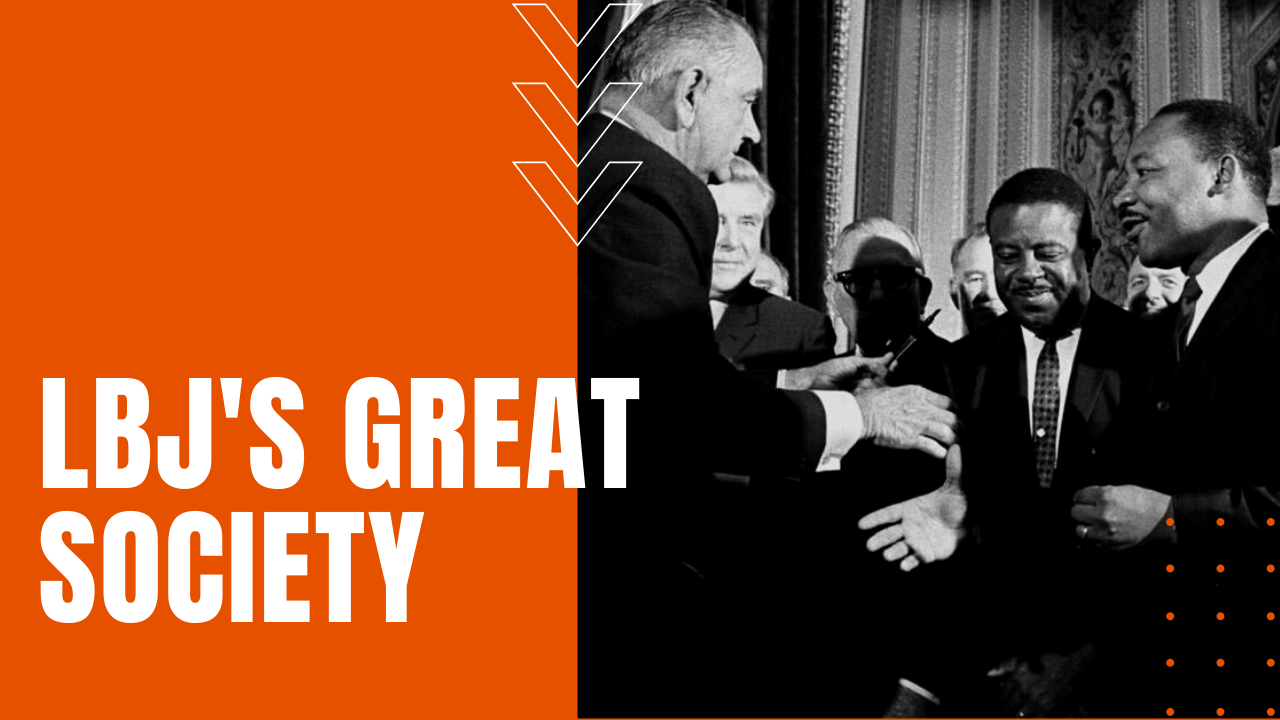The Great Society of Lyndon Baines Johnson

To look back before the legislative reforms of LBJ’s Great Society movement of the 1960s, American life before his directives was a very different place. He saw racial discrimination and poverty as moral issues, not just political talking points to be debated but not acted upon.
The Great Society was a cluster of progressive programs undertaken by the president and Congress, which generated great hope among the downtrodden and the disillusioned. It was quixotic and Arthurian, this idea of might for right, inspiring programs for social justice that still resonate to this day. The war on poverty was part of an idea that you had not a handout but a hand up.
In the 1960s, it was hardscrabble for a lot of Americans, and what the war on poverty meant for these people was jobs, bringing the less affluent into the mainstream of society. When Lyndon Johnson became president, the poverty rate teetered at a staggering 22 percent, compared to 6.2 percent today (March 2021).
Civil Rights, Medicare, and Community Action
By the time he left office five years later, the poverty rate was less than 13 percent, which constituted the greatest one-time reduction in the history of the United States. Johnson and civil rights groups managed to pass The Civil Rights Act of 1964, which comprised the first major civil rights legislation since 1875. The act said that public accommodations have to be available to everybody without discrimination on the basis of race, and with one fell swoop, Johnson’s Great Society movement wiped out all the white’s only signs in the segregated south.
Perhaps the greatest benefit of Johnson’s Great Society was Medicare, for before its time, people who reached the age of 65 had no guaranteed health insurance, while today, after LBJ and Congress passed the Medicare Act, in 2021, some 63 million senior Americans are enrolled in Medicare.
While most presidents are happy to have one or two pieces of significant legislation attached to their legacy, Johnson pushed through an uncanny amount of impactful laws, which altered the face and very fabric of the nation up to this day.
“Abundance and liberty for all.”
President Lyndon b. johnson
President Johnson’s Legislative Achievements
- Neighborhood Youth Corps Volunteers in Service to America Model Cities Program
- Upward Bound Food Stamp Act of 1964
- Community Action Program
- Community Action Agencies
- Head Start Amendments to Social Security
- Elementary and Secondary Education Act
- Higher Education Act of 1965
- Teacher Corps
- Bilingual Education Act of 1968
- Medicare & Medicaid
- National Endowment for the Arts
- National Endowment for the Humanities
- Public Broadcasting Act of 1967
- Corporation for Public Broadcasting
- Public Broadcasting Service (PBS)
- National Public Radio (NPR)
- John F. Kennedy Center for the Performing Arts
- Urban Mass Transportation Act of 1964
- High-Speed Ground Transportation Act of 1965
- National Traffic and Motor Vehicle Safety Act of 1966
- Cigarette Labeling and Advertising Act of 1965
- National Highway Traffic Safety Administration
- Fair Packaging and Labeling Act
- Wholesale Meat Act of 1967
- Truth-in-Lending Act of 1968
- Water Quality Act of 1965
- Clean Air Act of 1963
- Wilderness Act of 1964
- Endangered Species Preservation Act of 1966
- National Trails System Act of 1968
- Wild and Scenic Rivers Act of 1968
- Land and Water Conservation Fund Act of 1965
- Solid Waste Disposal Act of 1965
- Motor Vehicle Air Pollution Control Act of 1965
- National Historic Preservation Act of 1966
- Aircraft Noise Abatement Act of 1968
- National Environmental Policy Act of 1969
- Demonstration Cities Act of 1966
- Economic Development Administration
- Fair Labor Standards Act
- Fair Housing Act of 1968
